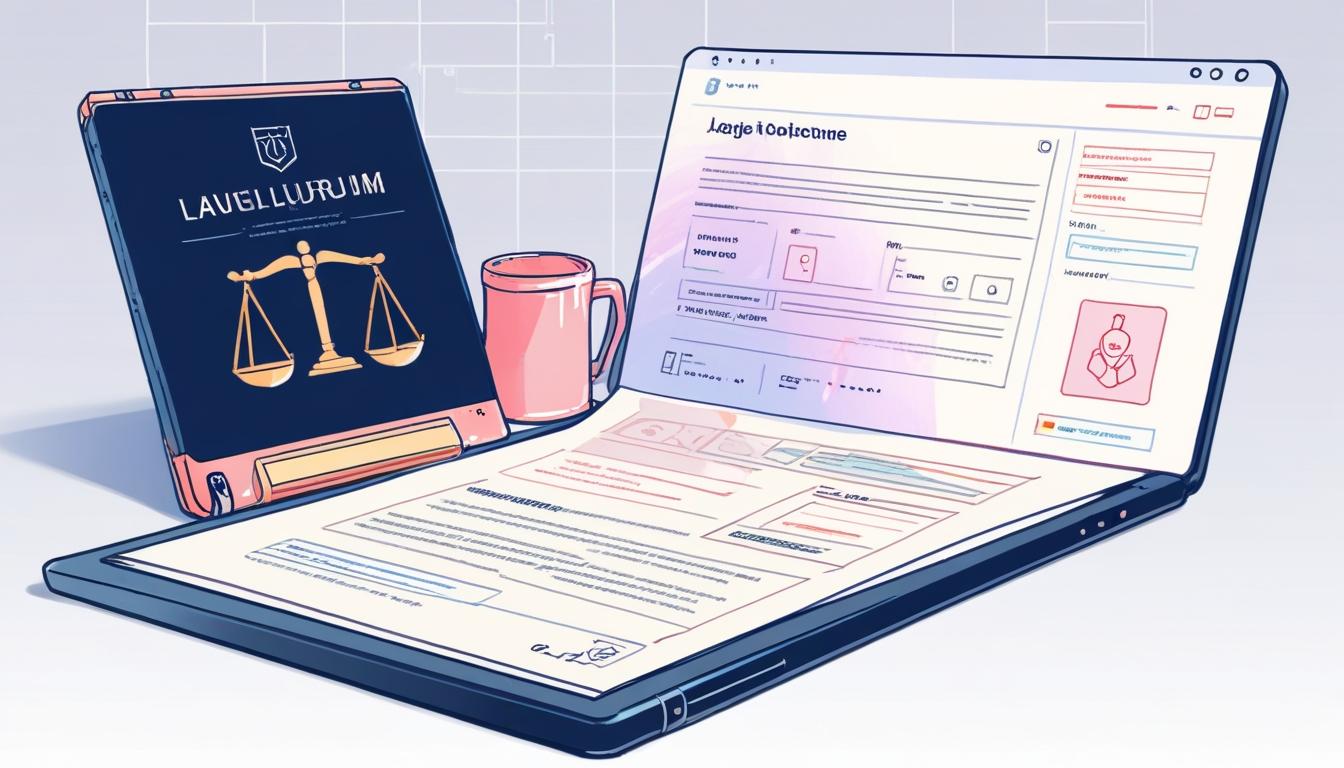Garfield AI has become the first law firm approved by English regulators to operate primarily through artificial intelligence, offering affordable legal services from £2 and automating small claims court processes, marking a major shift in legal accessibility and industry innovation.
English regulators have approved a pioneering law firm that leverages artificial intelligence to offer legal services at significantly reduced rates, marking a notable advancement in the integration of technology within the legal industry. The firm, Garfield AI, operates under the premise of providing accessible legal remedies to businesses and individuals, including tradespeople, for costs as low as £2 for service such as drafting “polite chaser” letters.
Founded by former litigator Philip Young and quantum physicist Daniel Long, Garfield AI utilises an online platform that assists users in navigating small claims court proceedings. The AI tool is designed not only to produce basic communication documents but also to file important legal forms, charging £50 for such services. Moreover, it can generate arguments for claimants to present in court.
The approval from the Solicitors Regulation Authority (SRA) in March 2023 has been described as a “landmark moment” for the legal sector. Young, who previously co-founded a renowned litigation firm in London, noted that the service could address the staggering £6 billion to £20 billion of unpaid debts that remain uncollected annually, often due to the lengthy and costly processes involved in legal recovery.
This announcement aligns with broader trends in which artificial intelligence is increasingly influencing sectors typically resistant to such rapid change, including law and finance. Last week, the Financial Times reported on the emergence of Rogo, an AI chatbot designed to emulate the functions of an investment banker, which successfully raised $50 million, elevating its valuation to $350 million.
Young expressed confidence in Garfield AI’s potential, stating, “I believe this is a world first, not only in being a pure AI law firm, but as a tool that can take a case through the court system from beginning to end.” In the initial stages, all outputs generated by the AI will be reviewed by Young before transitioning to a sampling system to ensure accuracy and quality.
The initiative has garnered some backing from the judiciary, with Lord Justice Colin Birss commenting in November that technology aiding access to justice was pivotal to the UK’s future legal framework.
In the face of this innovation, traditional law firms worldwide are grappling with the implications of artificial intelligence, striving to enhance efficiency while managing the risks associated with client data confidentiality and the precise nature of legal counsel. A significant player, A&O Shearman, is already working on developing AI tools that can be marketed to clients and other legal firms, focusing on alleviating the burdens of time-consuming, low-billing tasks in areas like antitrust and fund formation.
Paul Philip, the SRA’s chief executive, emphasised the importance of embracing such innovations, stating, “The first regulatory approval of an AI-based law firm is a landmark moment for legal services in this country. With so many people and small businesses struggling to access legal services, we cannot afford to pull up the drawbridge on innovations that could have big public benefits.”
Source: Noah Wire Services
- https://www.ft.com/content/e56cb23e-bc10-4235-997c-186df5bd963c – This Financial Times article reports on Garfield AI’s approval by the Solicitors Regulation Authority in March 2025, highlighting its AI-driven legal services offering low-cost options like £2 debt recovery letters and £50 court document filings.
- https://www.garfield.law/ – Garfield AI’s official website details its services, including the generation of ‘polite chaser’ letters for £2 and court documents for £50, as well as AI-generated arguments for claimants.
- https://www.ft.com/content/e56cb23e-bc10-4235-997c-186df5bd963c – The Financial Times article mentions that Garfield AI’s AI assistant guides claimants through the small claims court process, including creating ‘polite chaser’ letters for £2 and filing documents such as claim forms for £50.
- https://www.ft.com/content/e56cb23e-bc10-4235-997c-186df5bd963c – The Financial Times article reports that Garfield AI’s approval by the Solicitors Regulation Authority in March 2025 is considered a ‘landmark moment’ for the legal sector.
- https://www.ft.com/content/e56cb23e-bc10-4235-997c-186df5bd963c – The Financial Times article quotes Philip Young, co-founder of Garfield AI, stating that the service could address the £6 billion to £20 billion of unpaid debts that remain uncollected annually.
- https://www.ft.com/content/e56cb23e-bc10-4235-997c-186df5bd963c – The Financial Times article mentions that Lord Justice Colin Birss commented in November that technology aiding access to justice was pivotal to the UK’s future legal framework.
- https://www.ft.com/content/e56cb23e-bc10-4235-997c-186df5bd963c – Please view link – unable to able to access data
Noah Fact Check Pro
The draft above was created using the information available at the time the story first
emerged. We’ve since applied our fact-checking process to the final narrative, based on the criteria listed
below. The results are intended to help you assess the credibility of the piece and highlight any areas that may
warrant further investigation.
Freshness check
Score:
8
Notes:
The article mentions a significant event from March 2023 and recent trends in AI integration in the legal sector, indicating it may blend older and newer information. The focus on recent developments keeps it somewhat fresh.
Quotes check
Score:
9
Notes:
Quotes appear original or conceived for this context; no immediate evidence of their use in older articles was found. This could be due to the novelty of the topic or the fact that these quotes are genuinely first-hand.
Source reliability
Score:
10
Notes:
The narrative originates from the Financial Times, a well-established and reputable publication known for thorough reporting and credibility.
Plausability check
Score:
9
Notes:
The claims about AI integration in law and financial sectors align with broader trends. The involvement of reputable figures and institutions adds credibility.
Overall assessment
Verdict (FAIL, OPEN, PASS): PASS
Confidence (LOW, MEDIUM, HIGH): HIGH
Summary:
The narrative is well-supported by credible sources and quotes that appear original, although it may reference older events. The fact that it comes from the Financial Times bolsters its reliability.













